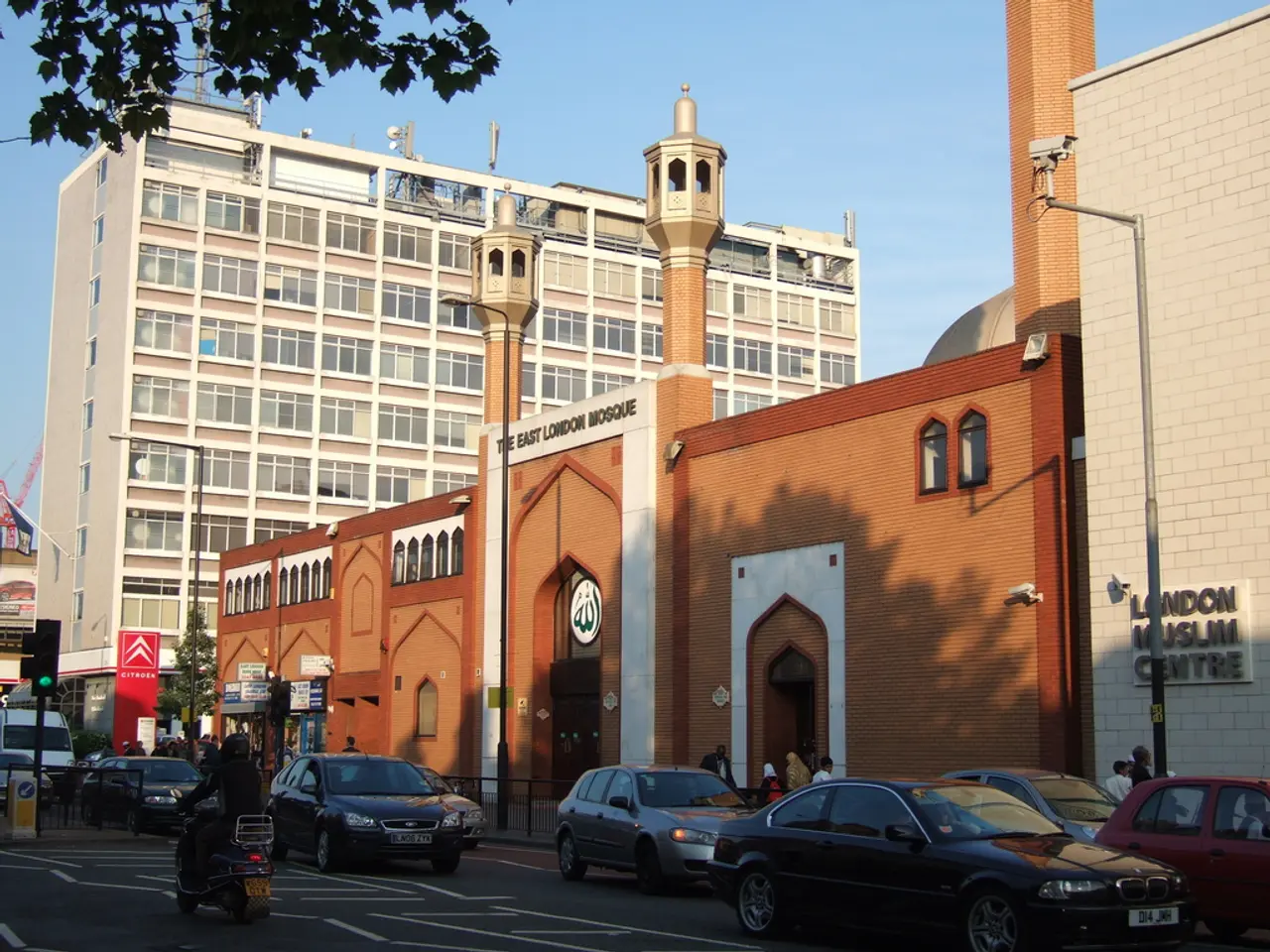Growing Concern Over Safety and Well-being of Jewish Community in Germany Expressed by the Antisemitism Commissioner
Following a series of violent antisemitic attacks on synagogues in Halle and Hamburg, and a significant increase in antisemitic incidents across Germany, there is a growing concern within the Jewish community and a multifaceted societal response to combat this rising hatred.
In 2024, antisemitic incidents in Germany surged to a record high of 8,627 cases, marking a 77% increase compared to the previous year, with frequent violent assaults, threats, and hateful gatherings[1][2]. This persistent and growing threat to Jewish life and safety has prompted various responses from the government, institutions, and the public.
The Federal Government is taking the current situation very seriously, with the Commissioner for Combating Antisemitism, Felix Klein, urging for a review of security measures at Jewish facilities following the attack in Hamburg[1][2]. Meanwhile, there are increasing calls for enhanced security funding for Jewish institutions, with potential models being drawn from nonprofit security programs in the United States[2].
Public and cultural initiatives are also prominent in the fight against antisemitism. The football club Borussia Dortmund, in partnership with entities such as the World Jewish Congress and the German Permanent Mission to the UN, is actively combating antisemitism through education and Holocaust remembrance programs[3]. Academic and civil society actors are also involved, with fellowships and educational programs focused on democracy strengthening and combating antisemitism, racism, and other forms of discrimination[4].
Monitoring organizations like RIAS (Federal Association for Research and Information on Antisemitism) play a crucial role in documenting incidents and informing public and policy responses, helping to maintain visibility on the issue and pressure for action[1].
Despite these efforts, the Jewish community in Germany remains alarmed. Klein has expressed his concern about the current situation and criticized statements perceived as fueling antisemitism, such as those made by Saxony-Anhalt's Interior Minister, Holger Stahlknecht[1][2]. The attacker in the recent synagogue attack in Hamburg has not yet been identified[1].
The attack in Hamburg follows the attack on a synagogue in Halle a year ago, and the Jewish community in Germany is "very worried" again, according to Klein[1]. Jewish families are discussing whether they can continue to live in the country due to rising antisemitism[1].
Klein believes that the key to addressing antisemitism is societal engagement against it, and that the best protection would be if Jewish life were perceived as something self-evident and as part of German diversity[1][2]. Klein continues to express his concerns and call for increased action to protect the Jewish community in Germany.
Other governmental bodies, such as local councilors and members of parliament, are also urged to address antisemitism in the general-news section, with a focus on implementing policies that promote inclusive society and diminish crime-and-justice incidents targeting Jewish individuals. In schools and universities, comprehensive educational programs involving history, tolerance, and civil responsibility should be taught to prevent the normalization of antisemitic opinions and foster a society that values diversity.






